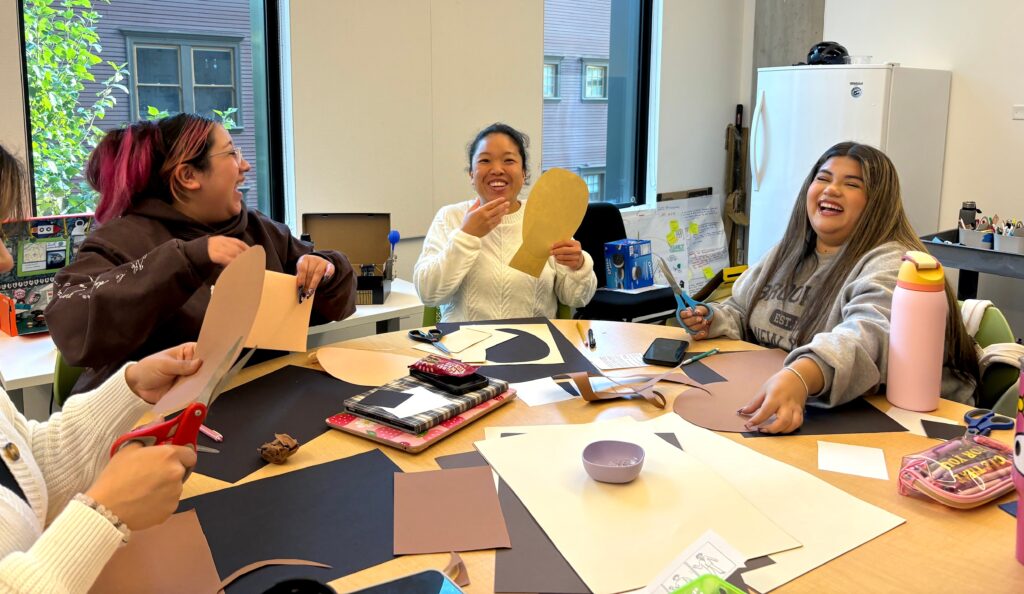A state grant for Oregon university students pursuing teaching degrees will no longer be restricted to students of color or those who speak a first language other than English, after the Legislature voted Thursday to broaden who can receive the scholarship out of fear the program could face legal challenge.
While the bill hit a snafu during a Wednesday Senate vote — failing to secure the necessary 16 yes votes with seven senators absent — senators reconsidered it Thursday and passed it to Gov. Tina Kotek’s desk.
For years, the grant has offered financial support to “culturally and linguistically diverse” Oregon college students studying to become educators. Now, it will be open to any teacher candidates demonstrating “experience with diverse populations.”
The change was made out of concern that the state could become embroiled in a legal battle over the grant, said Kyle Thomas, director of legislative and policy affairs for the Higher Education Coordinating Commission, which proposed the legislation.
Following the Supreme Court ruling striking down affirmative action and a 2024 lawsuit against Oregon’s educator standards board, the commission decided the grant needed stronger legal footing, he told The Oregonian/OregonLive.
The lawsuit was brought by a white teacher, fluent in Spanish and English, who was rejected from a state program that reimbursed diverse educators renewing their teaching licenses. After the standards board modified the program to allow educators with second language fluency to apply, the lawsuit was voluntarily dismissed.
Demographic mismatch
More than 40% of Oregon’s public school students are non-white, while approximately 14% of teachers identify that way.
In an effort to narrow that gap, the grant had offered Oregon university students who are people of color or were raised speaking a language other than English up to $24,000 across two years to pursue a teaching license.
With Thursday’s change, the program now will select scholarship recipients based on experience, not the candidate’s first language or racial or cultural identity.
“The goal is to make sure that the aspiring educators that we award grants to are those that have the skills necessary to serve the culturally and linguistically diverse populations and, of course, all students,” Thomas said.
The Higher Education Coordinating Commission is still determining who exactly would qualify for the new grant, he said. In a March public hearing, Democratic Rep. Lesly Muñoz of Woodburn questioned what “experience with diverse communities” means, asking if attending a quinceañera would count.
Thomas responded that the parameters have yet to be defined, but experience generally requires more than one-off events. In a May interview with The Oregonian/OregonLive, Thomas said the criteria should be finalized “relatively soon.”
The change will affect all new grants awarded for the coming academic year, including students who already applied for the fall. The application will soon reopen for everyone and all current applicants except those who are renewing a grant from last year will be notified that they must reapply.
An ‘empowering’ program
The legislation’s opponents, including the Oregon Education Association, said the new change weakens the program and makes it more difficult to support diverse students.
Candidates and teachers involved in the Oregon Teacher Scholars Program said that the grant’s focus on cultural and linguistic diversity was validating for them, their peers and their students.
Jadie Wright had been working as a bilingual teaching assistant in Albany when her principal encouraged her to pursue a teaching license and apply for the grant. With a toddler at home, she couldn’t have taken a full course load without the financial support, Wright said.
Now Wright, who grew up speaking Spanish and English, helps second graders navigate the two languages in her Albany classroom.
“In the classroom, I’m able to make a difference with my students who may not have been able to learn from people like them before,” Wright said. “Having someone like them in the classroom is empowering for the students, for me, for the parents.”
Changing the program could make it more difficult for potential future teachers to have that same impact, Wright said.
Jennifer Rincon Gonzalez, who grew up speaking Spanish, is a senior at Oregon State University and another grant recipient. She plans to become a social studies teacher, with certification to teach in both English and Spanish. The grant not only made her teaching degree financially accessible but helped her feel supported.
“When I was informed of the grant, I was like ‘Oh my gosh, this is perfect for me,’” Rincon Gonzalez said. “Knowing that there was a grant specifically for me, for people like me, it was really rewarding and made me feel seen.”
Niki Weight, an Oregon State University administrator, said that the grant’s focus on diverse candidates increased access to education for a wider range of students. There is significant overlap between culturally and linguistically diverse students, those with high levels of financial need and first generation college attendees, said Weight, director of student success at the university’s College of Education.
“By focusing on underrepresented, diverse groups with grants, we are giving access to education to people who otherwise might not be able to afford it,” Weight said.
While students with these backgrounds would likely still be eligible for the modified grant, they will be part of what could be a wider pool of candidates, even as the money administered for the program stays the same.
An uncertain future for teacher diversity
Thomas said that the Higher Education Coordinating Commission understands the concerns about altering the program. The commission needed to request the change this session to avoid potential legal challenges next school year, Thomas said.
The bill passed through the Legislature with little public discussion beyond Republican House members saying in floor speeches that the modified program still would violate federal law. Thomas said that the Oregon Department of Justice and legislative counsel both determined that the new wording passes legal muster.
Thomas said he encourages more discussion around what the change in scholarship qualifications means for continued efforts to diversify Oregon’s teacher workforce.
“It’s an important policy debate for the Legislature and for [the Higher Education Coordinating Commission] and partners to have about what the long-term future of this kind of modified program looks like,” Thomas said.
More Oregon education stories
-
The Portland teachers union’s all-out effort to ‘cure’ ballots for a school board seat falls just short
-
Portland Public Schools weighs big changes to school attendance maps
-
Oregon early learning, child care programs poised for $45 million in cuts
-
At Portland State, decision to place faculty member on leave over Hamas comments adds to charged campus climate
-
This Portland organization has found a way to keep early childhood education accessible, aided by a prominent philanthropist
— Eddy Binford-Ross covers education and local politics for The Oregonian/OregonLive. Reach her via email at
ebinfordross@oregonian.com





More Stories
Scholarship to diversify Oregon’s teacher ranks drops racial preferences amid legal threats
Scholarship to diversify Oregon’s teacher ranks drops racial preferences amid legal threats
Scholarship to diversify Oregon’s teacher ranks drops racial preferences amid legal threats